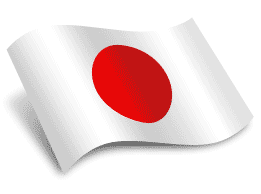Japan: Land of opportunities

Japan has been one of the popular education destinations for young Nepali people in recent years. Cultural similarity, to some extent, and a great deal of love and respect that Japanese people show have tempted career hungry Nepali students into pursuing their higher studies in Japan. For many of them, Japanese language training, vocational and academic programmes offered by universities continue to beckon.
Japanese language training
All students eyeing admissions in Japanese colleges/universities have to get through Japanese language training. The language course is determined according to the capacity of students ranging from 12 months to 24 months. Since most of the universities teach students in Japanese, mastering the language is a must for further education.
Various education institutions in Nepal offer students intensive language courses before they go to Japan. “We teach the students the basic Japanese language so that they don’t have to face any difficulties upon landing in Japan,” says Aruna Shakya of Japanese Language and Education. While taking language courses in Japan overseas students are entitled to work for 28 hours a week. “This means students can make some money. This is why Japan has been an attraction for Nepali students,” says Raji Thapa of Stairway Educational Services, a consultancy dealing with higher education in Japan. Conducted 20 hours a week, language classes cost between Rs 800,000 to Rs 1,000,000 per year inclusive of accommodation.
Post-Japanese language
After Japanese language training, students are eligible to apply for undergraduate or graduate level courses. Most of the language schools in Nepal take care of the application process to help prospective students enrol at Japanese colleges/universities. “The Japanese education system is very systematic and the students need not worry about anything once they complete the language course. Language centres offer proper educational counselling and guidance to the prospective students,” says Suman Karki of Elmira Education.
Popular courses
BBA and MBA programmes, run by Japanese universities, have been popular among Nepali students. Various universities based in different Japanese cities concentrate on management programmes. The plus point is that students applying for Management courses can change their core subjects according to their interests. “The students can choose Finance, Economics or Business Communications as their majors,” says Tanka Saud of Kumari Japanese Language Institute.
Another popular programme offered by Japanese universities is Hotel Management. “Since Japan’s service industry is growing, it’s easier for students of Hotel Management to get high-paying jobs once they complete their studies,” says Rama Kandel of Nepal Japan Sewa Centre.
Technical education
A large majority of Nepali students is interested in technical education. Japan, a leading country for innovation and technology, is also a mecca for the students pursuing technical courses. Engineering degrees are of world class that focus on pragmatic approaches. Fieldworks assigned by professors help students develop technological antenna. The other popular courses include Software Development, Animation and Design. “The technical courses are drawing Nepali students. By acquiring technical degrees students can find good jobs, even after returning to Nepal,” says Rama Kandel of Nepal Japan Sewa Centre. “Chemical Engineering is another attraction in Japan. Nepali students who have graduated in Chemical Engineering have had good success,” adds Kandel. Automobile Engineering, Civil Engineering, Architect Engineering and Computer Engineering are also popular among Nepali students. These courses cost around Rs 1,000,000 per year.
Vocational courses Japanese vocational courses have been very famous among Nepali students. After language training, students who don’t want to pursue academic studies can apply for vocational courses. Nursing is most sought-after course among Nepali students. “Mainly, Nepali female students choose Nursing. They can easily find jobs and earn extra allowances,” says Tanka Saud of Kumari Japanese Language. The other popular short-term courses include Pharmacy, Basic Accountancy and Physiotherapy. These courses cost Rs 700,000 to Rs 800,000 per year.
Tokyo, Sendai, Chiba, Kobe, Yokohama, Nagoya, Nagasaki and some other cities, lead the way in offering world class education. Compare to other countries, Japan provides quality education at affordable costs. Abundant job opportunities with handsome pay, pragmatic education programmes and placements make Japan a country for educational and intellectual excellence.
source: The Kathmandu Post,13 Sept 2012
Posted on: 2012-09-13































